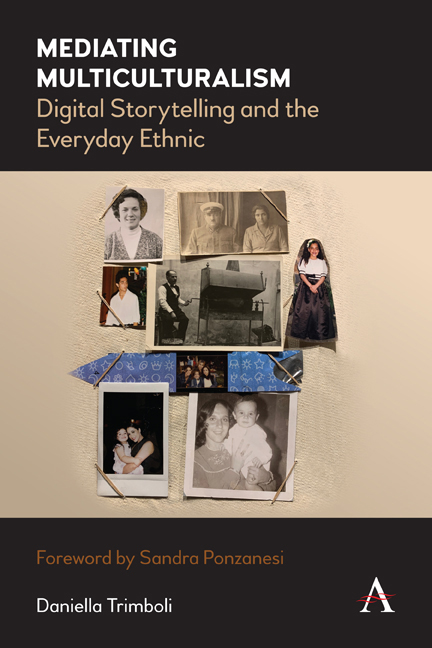Part One - Convergences
Published online by Cambridge University Press: 21 August 2020
Summary
This section comprises three chapters which establish the foundations and parameters of the cultural phenomena I am exploring in this book: multiculturalism, digital storytelling and the everyday. A historical analysis of multiculturalism as a liberalist, State-led initiative is provided, with a focus on the Australian context since the 1990s. The section works to illustrate how shifts in multiculturalism are often reflected in shifts in artistic pursuits and how notions of ‘the everyday’ and ‘cultural diversity’ become entangled in both domains in the twenty-first century. I undertake a broad analysis of everyday multiculturalism scholarship and its relationship to questions of whiteness and materiality, as well as an overview of the history of digital storytelling and its technical and methodological components. Chapter 2 provides definitions for the two types of digital stories used in this book: individual digital stories (those stories produced in a workshop environment but by a single author), and collaborative digital stories (digital stories co-authored in community-based-arts settings). Finally, the section introduces a new theoretical framework for analysing digital stories and everyday digital media as it pertains to cultural difference, merging a three-tiered optic:
1. Michel Foucault's apparatus of security (State level of analysis)
2. Judith Butler's theory of performativity (‘everyday’ level of analysis)
3. Affective economies (the body/ author-viewer level of analysis)
- Type
- Chapter
- Information
- Mediating MulticulturalismDigital Storytelling and the Everyday Ethnic, pp. 11 - 12Publisher: Anthem PressPrint publication year: 2020



